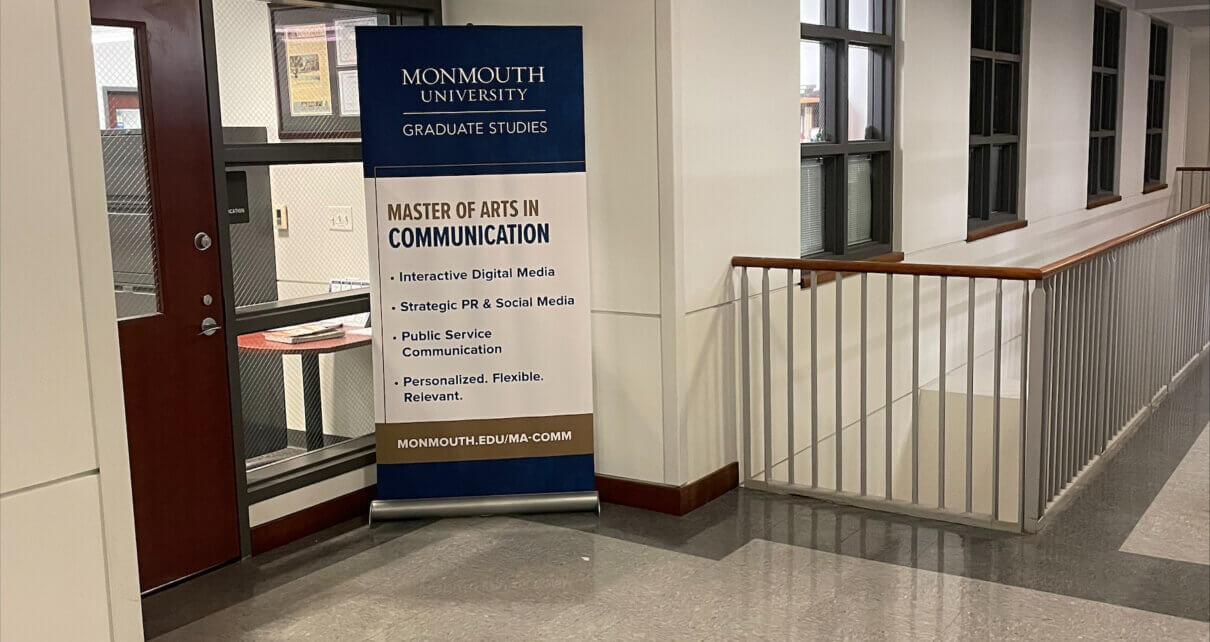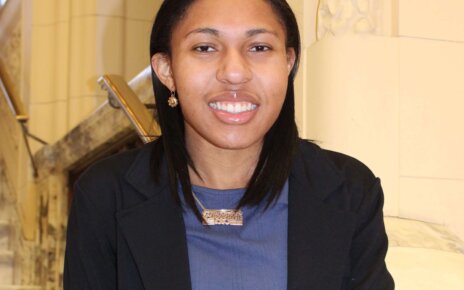Monmouth’s Department of Communications announced its decision to offer Sports Communication as a major concentration. Prior to this decision, Sports Communication was only offered as an undergraduate minor.
The Department has hosted a selection of sports communication classes as elective and minor-fulfilling courses for over ten years.
Aaron Furgason, Ph.D., Chair and Associate Professor for the Department of Communication, explained the reasoning behind making this track as a major concentration. “We have taught sports classes for years. The idea was to make that official and make an offering for students to pursue.”
He continued, “It’s been a long time in the making; It took eight years as an idea from Professor Matt Harmon and Professor Chad Dell.”
Alexis Nulle, MA, Specialist Professor and Faculty Co-Advisor of PRSSA in the Communication Department, is a strong proponent of this curriculum addition. “As a sports enthusiast myself, I think it is a great additive to our program. Especially teaching a sports and public relations class, I see a lot of students who are interested in sports,” said Nulle.
According to Nulle, the new major will still have the basic foundations of journalism and public relations while enhancing students’ knowledge in the sports and communication sectors.
Furgason elaborated, “Sports is fundamental to entertainment. Consumerism is founded in advertisements that we can click on at any time based on our interests, which shows the importance of understanding both advertising and the economics of sports content.”
“There is an increasing number of students who desire a career in sports…I believe that Sports Communication will be a popular area of study for students because there are a wide variety of employment opportunities related to sports and the sports industry. Everything from event management to play-by-play — it’s pretty much unlimited,” he expanded.
John Papagni, junior communications student, agreed with Furgason, saying, “I think this new concentration cluster opens a lot of opportunities for students that want to specialize in sports broadcasting; before this, the Department did not have concentration that directly related to sports.”
Nulle added, “I think this opens tons of opportunities for our faculty and staff to support students’ career aspirations as well.”
When asked what concentration clusters the Department should consider in the future, Papagni responded, “Perhaps a film concentration…If there is a market and demand for a particular specialty, it should be made accessible to students.”
Bente Steenhorst, PRSSA’s Public Relations Sports Coordinator and Communications student-athlete, discussed her thoughts about the undergraduate offering as a graduate student.
She said, “I would’ve definitely chosen that major if it was an option while I was an undergrad. I could have started my studies much earlier rather than as a graduate.”
Nulle likewise reflected on her undergraduate studies. “I honestly wish when I was in college that we had this opportunity. I did my undergrad work at Rutgers University, and it was either Communication or Journalism and Media Studies. If there was a sports option, I definitely would have gone that route. If a student knows they want to go into sports, having that special niche really makes a difference.”
Furgason concluded, “We’re excited to be able to offer students the opportunity to pursue an interest that they might have, in addition to a variety of job opportunities that are available in the sports field.”



